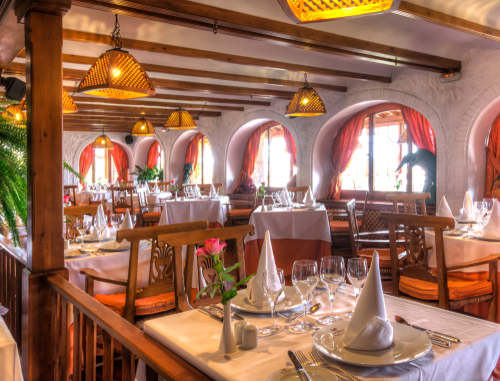UK Hospitality Staff Shortages: What Europe Is Doing Differently

The UK hospitality sector continues to face severe staffing challenges, with two fifths of venues at risk of closure due to labour shortages, according to the 2024 UK Hospitality Market Report. Post Brexit changes, economic uncertainty, and shifting worker expectations have reshaped the industry. Yet across Europe, hospitality careers remain stable, respected, and sustainable.
To close this gap, UK employers must rethink their staffing approach, adopting European models that prioritise training, professional development, and long term career pathways.
Key Takeaways:
- In Europe, hospitality is seen as a lifelong career, not a temporary role
- Two fifths of UK hospitality venues are at risk of closure due to staff shortages
- Continuing professional development (CPD) improves retention and performance
- Succession planning builds loyalty and leadership from within
- Apprenticeships and training enhance the reputation of hospitality as a skilled profession
- KSB Recruitment’s 2024 retention analysis shows businesses adopting structured CPD see a 45% longer tenure from managers
Hospitality roles: a European perspective
Across Europe, hospitality roles are considered professional careers with purpose, pride, and long term value. Workers invest years mastering their craft and move into leadership positions within hotels, restaurants, and resorts.
In contrast, the UK hospitality industry often treats such jobs as short term stepping stones. This perception limits both talent attraction and retention. According to KSB Recruitment’s 2024 retention analysis, businesses that implement formal CPD and career mapping see a 45 percent increase in average management tenure.
By promoting structured development and valuing skill, UK employers can build loyalty and raise industry standards.
Continuing professional development in hospitality
Younger generations now prioritise personal growth and job satisfaction. In hospitality, that means employers must provide clear development opportunities.
CPD improves not only individual performance but also overall morale and retention. Burgh Island Hotel trains its team in sustainable operations, improving environmental impact and staff engagement. Structured learning helps employees feel valued and invested in, which encourages long term commitment to the business.
Succession planning in hospitality recruitment
In the UK, recruitment often focuses on immediate hiring needs. However, European employers use long term succession planning to ensure stability and clear career progression.
Succession planning identifies high potential employees early and prepares them for management roles. This strengthens engagement, prevents knowledge loss, and builds a strong internal talent pipeline.
By adopting this model, UK hospitality employers can demonstrate a commitment to future growth and leadership development, key traits that attract ambitious talent.
Training and apprenticeships for hospitality roles
Training and apprenticeships are essential tools for developing a skilled workforce. They provide structured entry routes for new recruits and help experienced staff expand their knowledge base.
In Europe, formal education is central to the industry’s reputation. Institutions such as the ESO Euroschool Hotel Academy provide internationally recognised training that positions hospitality as a respected profession.
The UK could replicate this success by introducing dedicated hospitality education frameworks. This would make the industry more attractive to young people and career changers while ensuring consistent service standards across the sector.
Building a resilient UK hospitality sector
Relying on the return of EU workers is not a sustainable solution. Instead, the UK must adopt the European mindset of hospitality as a lifelong profession built on respect, development, and advancement.
Employers who prioritise CPD, mentorship, and structured progression will attract and retain staff and protect long term profitability. According to KSB Recruitment’s 2024 Culinary Retention Benchmark Report, hospitality businesses investing in development programmes reduce turnover costs by up to 30 percent annually.
How to Apply the European Model in Your UK Hospitality Business
-
1. Identify key roles that require clear career pathways and create structured progression routes
-
2. Introduce ongoing CPD covering technical skills, leadership development, and cross departmental learning
-
3. Build succession plans by identifying high potential team members early
-
4. Partner with colleges or training providers to introduce apprenticeship routes
-
5. Strengthen workplace culture so hospitality roles are positioned as respected professions
-
6. Measure progress by tracking retention, engagement, and internal promotions
FAQs
Q: Why is the UK hospitality industry struggling with staff shortages?
A: Brexit, post pandemic shifts, and limited career progression opportunities have reduced the talent pool, causing long term recruitment challenges.
Q: How does Europe approach hospitality careers differently?
A: In Europe, hospitality is viewed as a respected profession with structured training and clear career advancement.
Q: What is succession planning in hospitality?
A: Succession planning identifies and prepares internal talent for future leadership roles.
Q: How can training help solve staffing issues?
A: Structured training and apprenticeships improve skills, raise satisfaction, and create a more loyal workforce.
Q: How can UK employers adopt a more sustainable staffing model?
A: By investing in CPD, mentorship, and transparent career frameworks, employers can improve retention and reduce hiring costs.
About the author
Written by the team at KSB Recruitment, a trusted hospitality and catering recruitment agency with over 30 years of experience. KSB helps businesses across the UK attract, hire, and retain top hospitality professionals through expert recruitment and workforce consultancy.
Build a future ready hospitality workforce
Retaining top talent starts with adopting proven models of success. If your goal is to create a sustainable staffing strategy and build a team ready for long term success, contact KSB Recruitment today to learn how our Succession Ready Shortlist and Talent Consultancy Services can support your growth.

